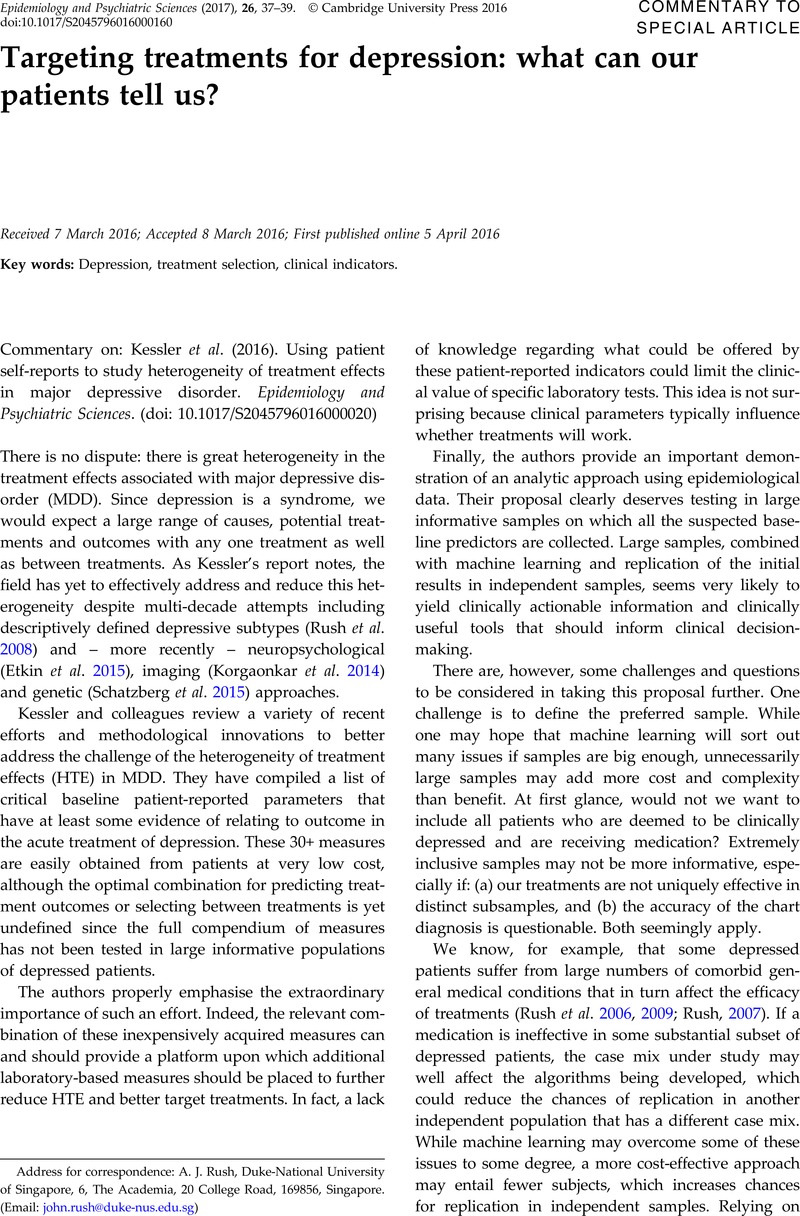Crossref Citations
This article has been cited by the following publications. This list is generated based on data provided by Crossref.
Getachew, Bruk
Mendieta, Liliana
Csoka, Antonei B.
Aguilera, José
and
Tizabi, Yousef
2019.
Antidepressant effects of C-Terminal domain of the heavy chain of tetanus toxin in a rat model of depression.
Behavioural Brain Research,
Vol. 370,
Issue. ,
p.
111968.
Safarova, T. P.
2020.
Late-Life Depression Treatment: the State of the Art.
Psikhiatriya,
Vol. 18,
Issue. 3,
p.
95.
Guan, Wei
Gu, Jiang-Hong
Ji, Chun-Hui
Liu, Yue
Tang, Wen-Qian
Wang, Yao
and
Jiang, Bo
2021.
Xanthoceraside administration produces significant antidepressant effects in mice through activation of the hippocampal BDNF signaling pathway.
Neuroscience Letters,
Vol. 757,
Issue. ,
p.
135994.




Target article
Using patient self-reports to study heterogeneity of treatment effects in major depressive disorder
Related commentaries (2)
Are personalised treatments of adult depression finally within reach?
Targeting treatments for depression: what can our patients tell us?